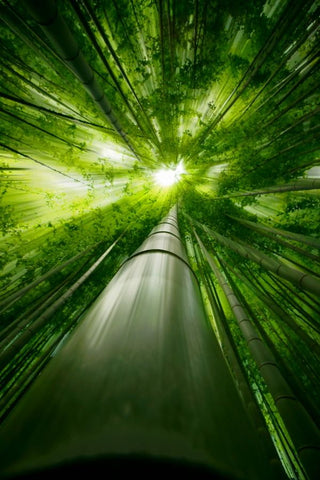At BU we don’t like bottled water for many reasons: damage to the environment, high cost, lack of regulation etc... however some of us live in areas where the tap water has a strong odour which will affect its taste; this is where water filters provide a cost effective alternative to bottled water.

A simple and natural option for filtering your tap water is using something called Binchotan. A method developed in ancient Asia, Binchotan is the name given to white charcoal, which is made by steadily steam-activating wood over a long period of time to temperatures in excess of 1,000 degrees Celsius.
So how does charcoal work as a water purifier? The Binchotan, a beautiful thick charcoal branch, absorbs unwanted particles such as bacteria, smells and chemicals (like chlorine) from the water and instead, releases natural minerals. Because the water is softened, our bodies easier absorb it to stay hydrated.
The Binchotan can simply be left in a jug of water to filter overnight and the result will be pure and crisp tasting tap water. Depending on frequency of use it is recommended changing the branch after about 3 months, alternatively you can reactivate it by placing it in boiling water for 8 minutes. At the end of its life it can be recycled into many different uses, one of which is to be smashed and used as compost.

Thanks to the bamboo charcoal’s incredibly porous surface, the ions of contaminants are attracted to the surface of the carbon, where they’re held.
Charcoal is probably not the first thing that comes to people’s minds when thinking about being eco-friendly, especially as charcoal tends to bring up images of mass deforestation and air pollution. However compared to the installing a home purification gadget, which cost hundreds of pounds, or buying bottled water - charcoal suddenly becomes much more environmentally appealing.This environmental argument for charcoal becomes even more persuasive when the source material is bamboo - the fastest growing plant on earth.

Binchotan is commonly made from oak, coconut or bamboo. We chose bamboo as it is renewable (see here) and unlike other materials it doesn’t require any post processing.
We are very excited to announce that the team at BU has been in the lab working hard on a new environmentally conscious design which incorporates Binchotan into a beautiful product. More details coming soon... #BUwater
0 comments